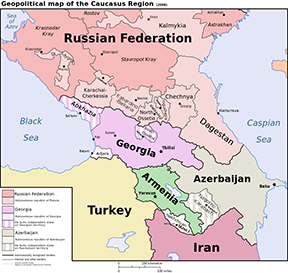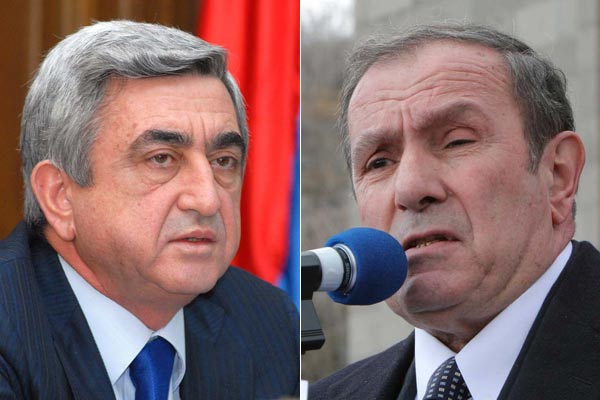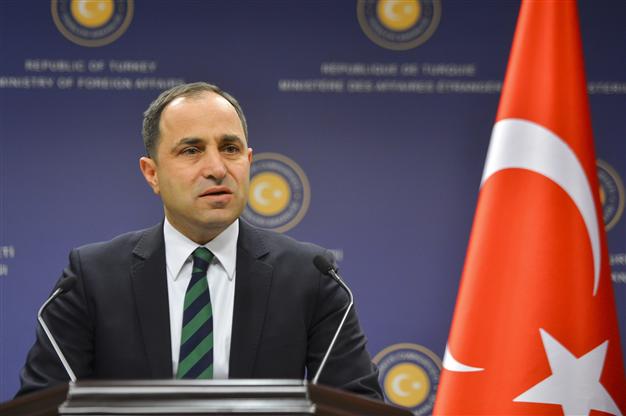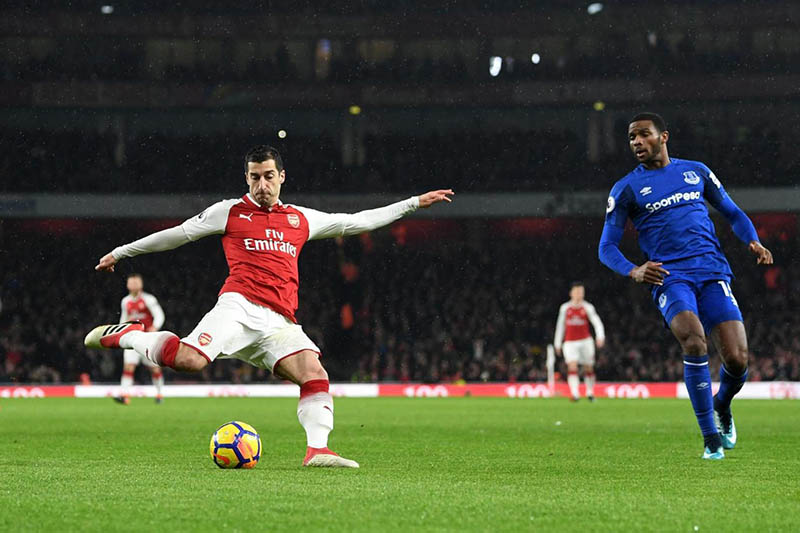Russia has sold some $4 billion worth of modern weapons to Azerbaijan in the past few years, with perhaps more to come.
These include S-300 air defense missiles, Mi-35M combat helicopters, T-90 tanks, Kornet anti-tank missiles, MSTA-S 152mm self-propelled artillery, and the highly destructive Smerch Multiple Launch Rocket System.
Since Azerbaijan’s 1994 defeat in the Karabakh/Artsakh war, its leaders have declared their intention to seize Artsakh by force. Azeris regularly shoot across, and try to penetrate, Artsakh’s ceasefire line. They have made territorial claims on Armenia and are even shelling villages in Armenia itself.
Armenia and Russia are allies and have a mutual defense pact. Russian troops help guard Armenia’s border with Turkey. Armenia is Russia’s only ally in the Caucasus. Why then is Russia supplying sophisticated weapons to a country that is not just Armenians’ enemy but also hostile to Russian interests?
Selling to the Enemy
Arms sales generate immediate profit for Russia plus continuing income from spare parts and future upgrades. The Russian military may also reason that it knows best how to counter its own weapons should it go to war with Azerbaijan. Perhaps Russia is embedding secret hardware and software vulnerabilities into Azeri weapons to disable them should the need arise.
Russia argues that if it won’t sell weapons to Azerbaijan, other countries will. Yet Baku has bought arms elsewhere: $1.6 billion worth from Israel, including Hermes drones and Spike anti-tank missiles, and significant amounts from Belarus, Turkey, and Ukraine.
By having Azerbaijan partly dependent on Russian weaponry, Moscow presumes it is co-opting Azeris and making them less likely to join NATO and supply gas and oil to the West. Are Azeris really that gullible? Baku could just be buying time until, with Turkey and NATO, it can strike back at Russia’s vulnerable underbelly.
Is Russia selling arms to Azerbaijan because it is unhappy that Armenia has cordial relations with the U.S., EU, and NATO? Probably not. Russia has always found less drastic ways to express its displeasure, such as increasing its natural gas prices.
But Armenians need not worry, says Russia, because it sells defensive weapons to Yerevan, reportedly at reduced prices, which neutralize the offensive ones that Baku buys.
Though Armenians currently hold the military advantage in Artsakh, can defensive weapons really match Azerbaijan’s offensive ones? And can Armenia, whose economy is only 13 to 20% of Azerbaijan’s, afford them? Yerevan may be paying not in cash but rather in factories, infrastructure, real estate, minerals, and debt. That increases Russian’s already considerable control over Armenia. And notice that Russia profits from selling weapons to both sides.
Russian Betrayals
Russia does not, of course, want Azerbaijan (or Turkey) to overrun Armenia. That would create a pan-Turkic corridor from Turkey to Azerbaijan. The U.S. and NATO would use it to dominate the Caucasus, Caspian Sea, and probably Turkic Central Asia.
Artsakh is a different matter. It has no military agreements with Russia. Indeed, Moscow might not care if Azerbaijan overran Artsakh since that by itself would not create a pan-Turkic corridor.
Russia might even want a new Artsakh war if it crippled Azerbaijan’s energy infrastructure and destroyed its gas and oil pipelines that lie just north of Artsakh’s borders. Or, depending on what Baku gives Moscow in return, Russia could even help Azerbaijan defeat Artsakh.
After all, post-WW I, Soviet Russia gave Artsakh and Nakhichevan to Azerbaijan, handed Armenian territory to Turkey, and delivered weapons to Turkish forces under Kemal Ataturk.
Turkey later turned against Russia and eventually joined NATO, while Azeris remained hostile to Moscow. Azeris and Turks outsmarted the Russians.
Some Armenians say that Jewish Bolsheviks, unlike the Russian Orthodox nationalists who allegedly control Russia now, were mainly responsible for those disasters.
Nevertheless, arms sales to Azerbaijan and Moscow’s massive trade and natural gas deals with Turkey remind Armenians of past Russian betrayals.
Armenia and Artsakh’s Security
To hedge against more Russian betrayals, and for economic, scientific, educational, and religious-cultural reasons, Armenia understandably maintains friendly relations with the U.S. and Europe.
Armenia cannot, however, look to the U.S. and NATO for military security. The latter regard Turkey as not only weightier than Armenia, but also as the horse on which to gallop into the Caucasus, Caspian, and beyond. Therefore, Armenia allies itself with Russia. Without Armenia, of course, Russia will lose the Caucasus and much more to NATO.
As Moscow aspires to someday be the leader of all Eurasian countries, it is attempting – in vain, undoubtedly – to lure Turkey and Azerbaijan away from a Western orientation. Failing that, Russia hopes such relations will produce short- to medium-term economic and political gains. For Russia’s own sake, it should examine its past pro-Turkic missteps.
Armenia and Russia will probably remain in a cycle of mutual need and suspicion for some time.
As Armenia and Artsakh face the future, therefore, deeper insight into Russian strategy and intentions is essential.
# # #
David Boyajian is a freelance Armenian American journalist. Many of his articles are archived at Armeniapedia.org.












4 comments
Mr. Boyajian,
There is something Armenians generally speaking have a hard time understanding and it’s called “realpolitik”. While Russia and Armenia and in a genuine strategic alliance, Russia is doing its best to also lure Baku into its orbit. Russian officials realize that if Moscow does not sell arms to Baku there are nations like US, Britain, Ukraine, Belarus, Pakistan, Turkey and Israel that would. With that said, does it really matter where the weaponry Azerbaijan uses are made? I don’t think so.
Azeris have the petrodollars to purchase whatever they want. We Armenians don’t have the money for modern arms, we therefore are being given whatever arms we need by Russians. Can you say thank you? Armenia has a tiny military. By covering the length of Armenia’s border with Turkey, Russia is giving Armenia the ability to concentrate its merge resources on its more manageable border with Azerbaijan. Can you say thank you?
The reality that somehow is escaping most Armenians today is this: Even in ideal circumstances, Armenia would NOT be able to defend its borders against Turks and Azeris without Russia.
Moreover, there is another angle: By supplying arms to Baku, Moscow is making sure to keep Armenia dependent on Russia. As you have seen recently, Russia’s politicking abilities are second to none. Russians know well that Armenians are easily bought. Russians know well that Armenia is saturated by Western mercenaries. Russians also know well that Armenia is allied to Russia today primarily because of the “Karabakh clan” in Yerevan.
Finally, by assisting both sides of the conflict, Moscow manages to “manage” the situation on the ground and maintain the prevailing status quo. I don’t have to tell you that the status-quo in Artsakh is ONLY in our interests.
Excellent article! However, I don’t think this subject can be adequately covered without a critical look at the role of Iran. The Iranians are naturally hostile to ANY territorial ambitions of Baku, and they stand to lose from a pan-turkic pipeline.
I think Boyajian’s article is simply asking us to have a healthy skepticism of Russian behavior and to consider Russia’s own motives. Russia is not without fault.
There is an active Western agenda to drive a wedge between Armenia and Russia and Armenians are being employed towards that goal. If the agenda to severe Armenia away from Russia ever materializes, say good bye to Armenia. The region of the world where Armenia finds itself in is on the verge of exploding. This is not the time for Americahay nonsense. Boyajian’s work Russophobic in nature and is presented out of geopolitical context. If he means well, he should try to make his case more objective and more constructive as Harutik suggests. Armenia is too small and too vulnerable to make a mistake like Ukrainians.